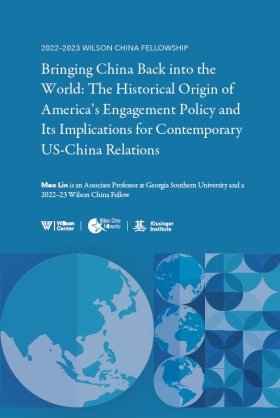Bringing China Back into the World: The Historical Origin of America’s Engagement Policy and Its Implications for Contemporary US-China Relations



With the deterioration of US-China relations in recent years, America’s engagement policy toward China has been heavily criticized for failing to change China into a liberal democracy and turning Beijing into a peer competitor of Washington instead. However, a more balanced history of engagement shows that engagement has served American interests quite well. During the 1970s, American officials and the broader foreign policy public forged a new perception of China as a “frustrated modernizer.” The priority of China was not to spread communism abroad but to turn the country into a first-class industrial power. However, China failed to modernize under communism, with the Sino-Soviet split further threatening China’s national security. America’s engagement policy was conceived as a realistic response to those changes. Engagement successfully turned China into America’s tacit partner against the Soviet Union, helped Washington to end its war in Vietnam, moderated China’s radical foreign policy, and contributed to the end of the Cold War. While the desire to change China into a liberal democracy loomed large in the background, that desire was only pursued as a long-term goal and no American administration ever set a firm timetable to turn it into reality. A balanced assessment of engagement can help us to forge a realistic strategy by aligning means with ends. America must realize many of the factors that will shape China’s future are beyond American control. A more realistic goal for US China policy is to shape China’s choices so that it will abide by the rules-based international order with or without political reforms. Washington should consistently convince Beijing that America does not seek to contain China’s rise if China can truly become a responsible stakeholder.


The Kissinger Institute works to ensure that China policy serves American long-term interests and is founded in understanding of historical and cultural factors in bilateral relations and in accurate assessment of the aspirations of China’s government and people. Read more


